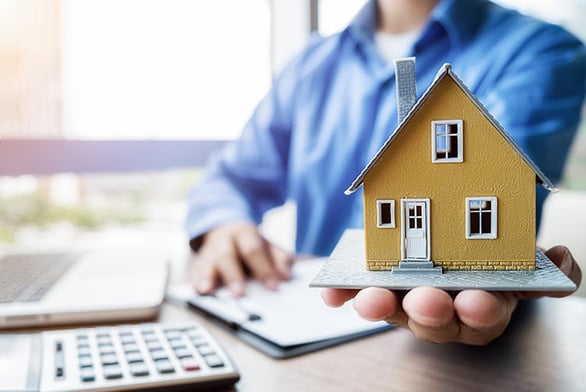
You do not have to live in your investment property, but if you do reside there for all or some of the year, there are different classifications for tax purposes.
When you own an investment property, the income you receive is reported as taxable income in most cases. There are also potential income tax deductions for a rental property that can help offset the rental income. Some deductions might include:
- Deduction of mortgage interest (can also be deducted for a primary residence)
- Depreciation deduction
- Homeowner’s Insurance deduction
- Maintenance costs on the rental property
- Homeowners Association Fees
- Utilities and property taxes not paid by the renter
However, depending on how long you live in the property, it can change the status of your income taxes.
Full-Time Residence
If you choose to live in an investment property full time, it will be considered your primary residence on your income taxes, and you will be allowed the standard deductions like mortgage interest and a portion of property taxes. You cannot use the deductions that are generally allowed only for investment properties.
Vacation Home or Second Home With No Renters
Let’s say you own a home in a nearby resort town and you visit once a month. Or maybe you purchased a home near your family and you spend a few months a year living there. For a second home with no renters, you would still consider it a primary residence for tax purposes.
Rental Investment Property
Renting out an investment property, even if you visit for two weeks a year, can garner you the income tax benefits of a rental.
For a property to be considered an investment property, the owner must not live in the property for personal use for more than 14 days a year or more than 10% of the total days it is used as a rental at fair market rental rates.
For instance, if you rent out the property for 250 days a year, you can reside in the property for no more than 25 days for it to be considered an investment for tax purposes.
So, while you do not have to live in an investment property, living there will change your income tax status, and it is important to know the classifications of a primary residence, second home, and rental investment property.
The best way to determine how living in your investment property will affect your taxes is to meet with a financial advisor to go over the specifics of your situation.
This material is for general information and educational purposes only. Information is based on data gathered from what we believe are reliable sources. It is not guaranteed as to accuracy, does not purport to be complete and is not intended to be used as a primary basis for investment decisions.



